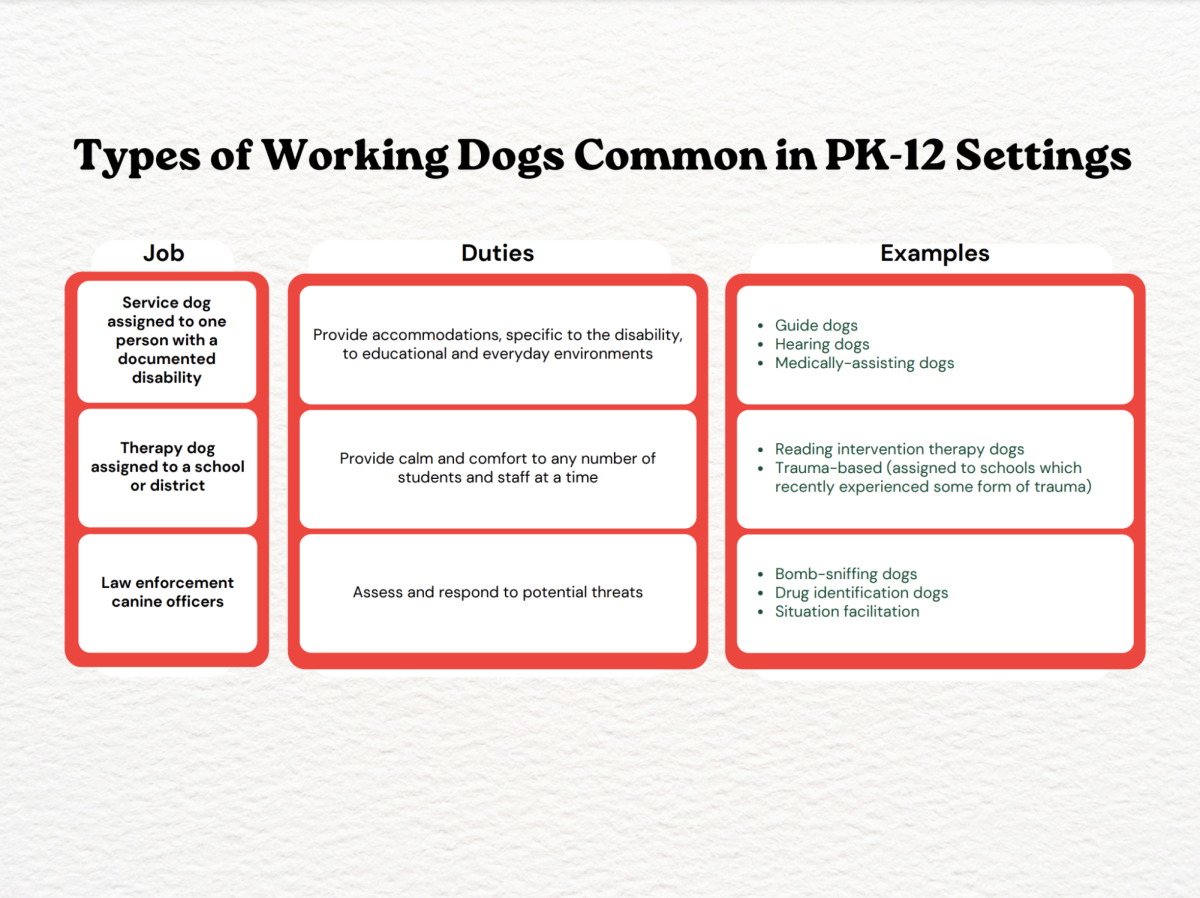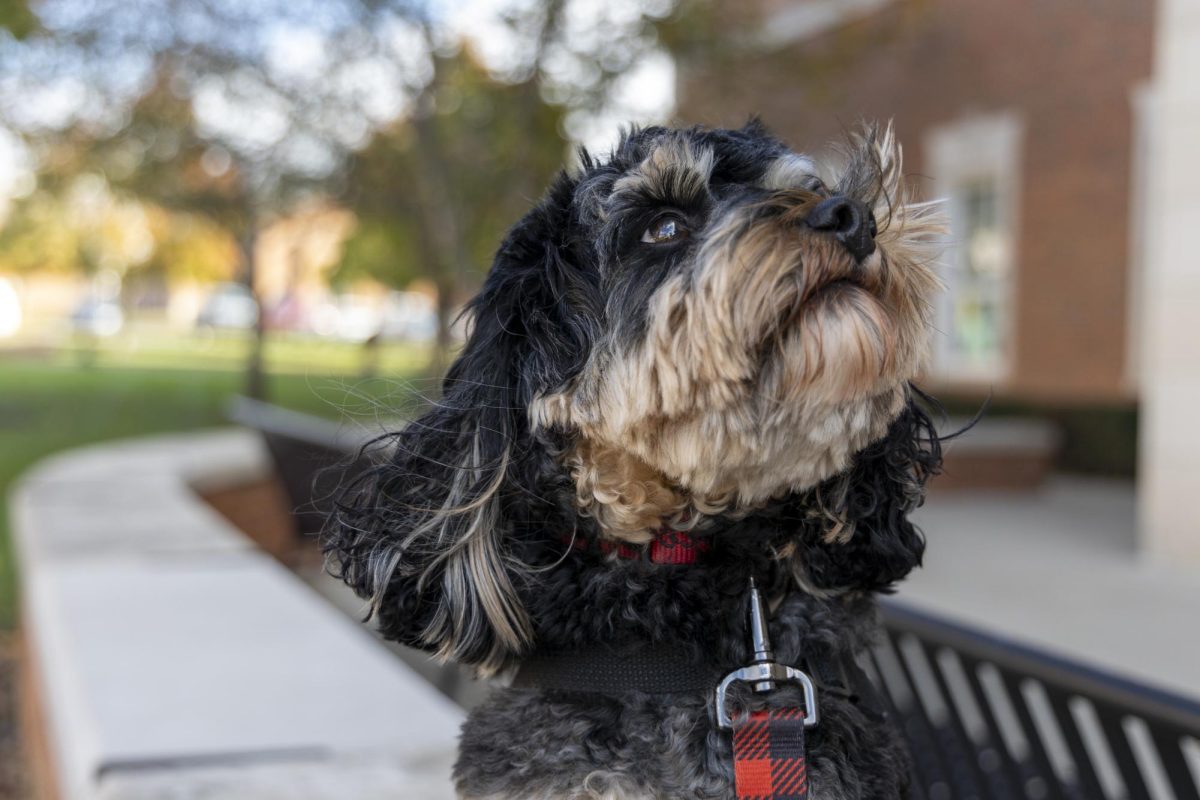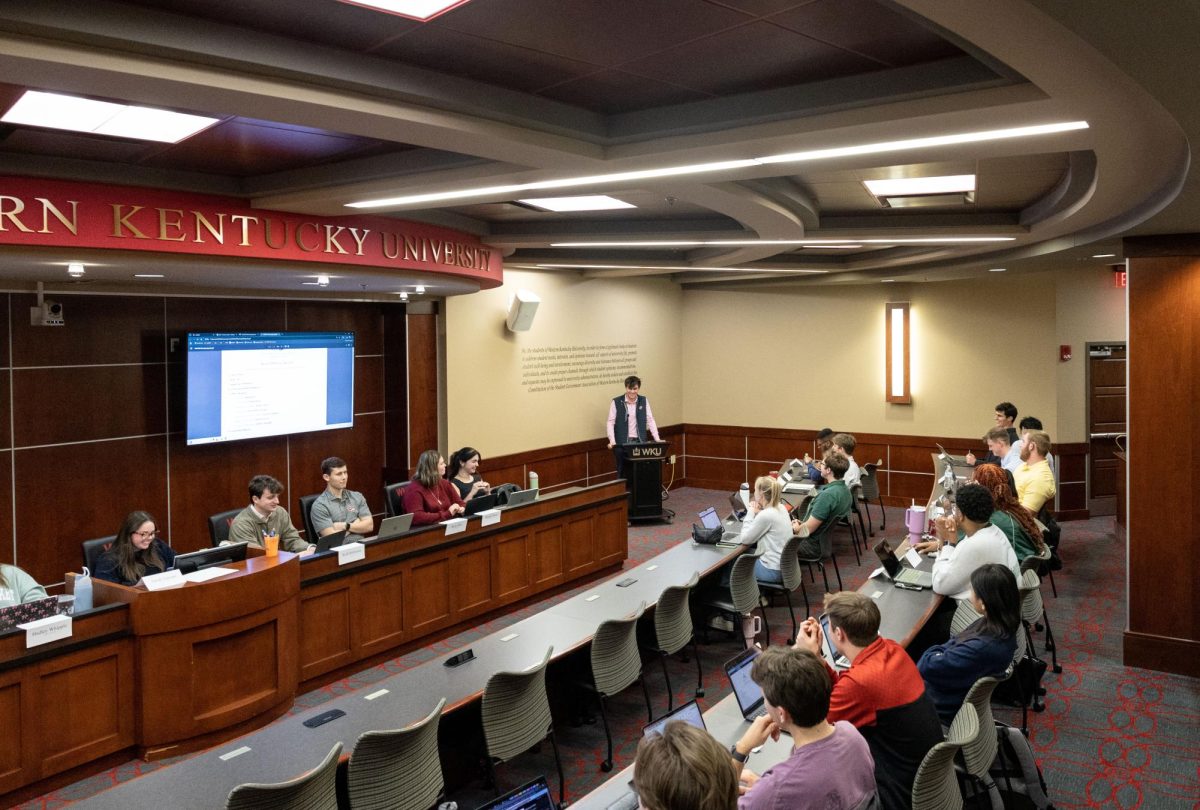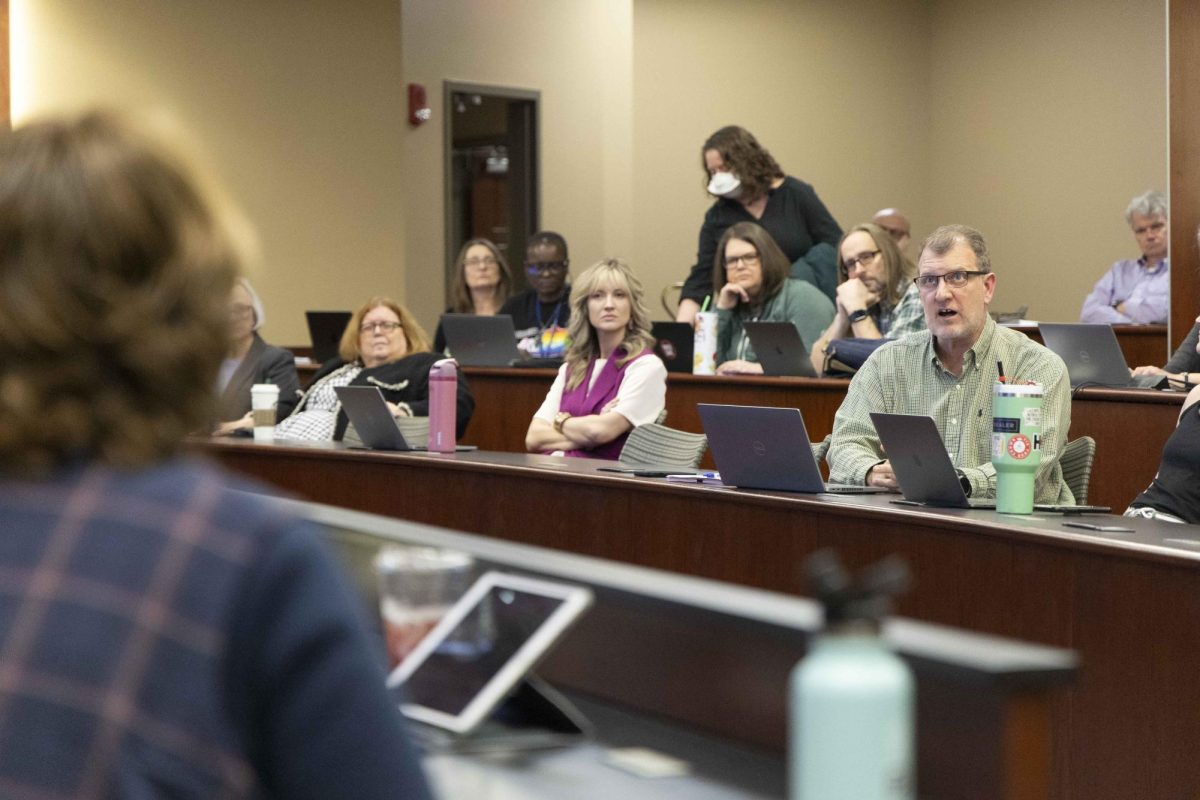As students frequent study spots on campus and the offices of professors, “Professor” Chip is comforting scholars with his own office hours and trips around campus.
Corinne Murphy, dean of the College of Education and Behavioral Sciences and owner of the 3-year-old cavapoo, said her furry friend’s role on campus as the CEBS therapy dog is multifaceted.
“His two jobs include awareness and bringing calm and joy to our faculty, students and staff,” Murphy said.
Chip’s office hours in the Gary Ransdell Hall Student Success Center serve as the latest addition to his resume of spreading smiles on the Hill. Murphy said students often find Chip in classroom visits and university meetings when he isn’t welcoming guests into the Success Center.
Junior psychology major Marleigh Solomon’s first interaction with Chip occurred off campus at a Discover WKU event in Nashville.
“This was my first ever set event that I had done as an ambassador and so I was definitely nervous,” Solomon said. “And whenever the dean brought Chip, it calmed my nerves a bit and just made me feel calm.”
Aside from bringing calm and joy, Chip helps future educators in the CEBS program prepare for school settings.
“Chip is meant to engage with our CEBS students as they prepare to lead and serve in their own classrooms and behavioral and mental health organizations when they graduate,” Murphy said.
Many of the CEBS students partner with local school districts like Warren County and Glasgow, according to Murphy.
“Chip came about specifically because the Warren County and local school districts were adding therapy dogs at the time,” Murphy said. “It was right after the tornadoes after we were recovering from the pandemic. There had been a lot of trauma in our community, and our leadership team in the college talked about the idea of where are therapy dogs within our settings.”
Murphy said one of the most important ideas that Chip has promoted since he earned his position at WKU is the interactivity of therapy dogs.
“It’s as much about teaching folks how to interact with a therapy dog, because the assumption is they’re going to act like a pet,” Murphy said. “Chip’s vest is actually his indicator that he’s on duty.”
Chip’s black vest is labeled in bold white letters “please ask to pet me.”
“I’m lucky that I’ve always grown up with dogs, but not everyone has that,” said CEBS Communications Specialist Jessica Basham. “I think knowing the difference between the different working dogs and how to act around them (is important).”
Basham said the distinctions between different working dogs in the field is a pressing issue regarding public perception.

Chip falls under the second category in the graphic above, according to Murphy.
“Therapy dogs are trained animals, trained dogs specifically, that go into very specific settings for a purpose, and that purpose is to work with individuals in that setting,” Murphy said. “For Chip, he brings calm, he brings joy.”
Chip graduated from Deer Creek Labradoodles’s Gifted Therapy program after roughly a year of training, and found his home with Murphy in July 2022.
“In terms of training, we have a standard therapy program that all of our enrollees complete – which includes completing the Canine Good Citizen test, visiting public places that allow dogs, having strangers meet the puppies, visiting school and senior centers,” said Sandi O’Banion, co-owner of Deer Creek Labradoodles.
For Deer Creek’s future licensed therapy dogs, the training is specific to their future settings, according to O’Banion. The organization also trains autism assistance service dogs.
According to Deer Creek’s Autism Assistance Program, “Autism service dogs can help an individual on the Autism Spectrum in many ways with tasks such as tethering, deep pressure therapy, interrupting self-harm and/or stimming behaviors, calming tantrums and meltdowns, acting as an emergency anchor to help with bolting, confidence building, and more.”
“Autism is a big part of our work here within the college, and so we wanted to support an organization that does work with the autistic population to provide them service dogs,” Murphy said.
Murphy said her background with autism assistance during her time at Ohio State University in the early 2000s inspired her to stay connected with disability programs throughout her professional career.
“My work with the autism population, it was a little bit of a sticking point for me, because I was working with a lot of families associated with Children’s Hospital Autism Center, and none of them had pets, really,” Murphy said. “And it seemed to be that autism was a perceived barrier to having a pet, and that an autistic kid might not be able to take care of a pet.”
Murphy said she challenged this popular assumption at the time and focused one of her studies in her doctoral programs around interactions between her students and their own betta fish. Her students’ morning routines revolved around feeding their own fish, and they eventually took them home as their first pets.
“That’s a lot more about access to joy and calm and making sure that people understand that disabilities shouldn’t be a barrier to everyday happiness,” Murphy said. “We can actually work with folks and help folks have access to those kinds of everyday joys that are pets.”
Murphy said Chip is in full pet mode while he’s at home away from the Hill, despite being a therapy dog first.
“Fall is a pretty great season,” Murphy said. “Students get back, and he gets leaves to jump over.”
Chip also loves dashing through the snow during winter and hounding squirrels no matter the season. While Chip anticipates the snow season, he’ll be chipping in to uplift spirits on campus and hosting a couple more office hours as finals week approaches.
“Classes and college can be overwhelming and having a pet there is nice, it’s a nice calming add to your day,” Solomon said.
News Reporter Kane Smith can be reached at kane.smith490@topper.wku.edu.






